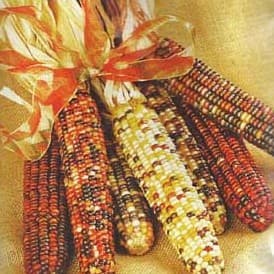GMO Seeds Definition

About GMO Seeds - Genetically Modified Organisms
One of the major reasons why people grow home gardens is to provide healthy food for themselves and their families. Chances are, you’ve read articles written by people on both sides of the debate. Many home gardeners, and all organic gardeners, are concerned about the topic of GMO versus non-GMO seeds. GMO stands for Genetically Modified Organisms. Specifically, home gardeners wonder if vegetables from genetically modified seeds are safe. After all, most home gardeners partake in the hobby to provide healthy food for themselves, their families, and friends.
Understandably, the terms can be confusing. So, let’s take the mystery out of GMOs, which are sometimes called Genetically Engineered Organisms (GEO).
This article will help to put your mind at ease about the seeds you purchase, and the safety of your garden vegetables.
Are GMO Seeds Good or Bad?
There is ongoing debate about the safety of using GMO seeds, versus organic non-gmo seeds. Ultimately, we leave this decision up to you, the home gardener, to determine the safety of your seeds. After all, you are the one who will consume the produce from the seeds you acquire.
We will not take a position on this debate. Rather, we will let you form your own opinion.
Here are a few pros and cons to consider:
GMOs can produce greater yields and help to feed a hungry world.
They can reduce or eliminate the need for pesticides and fungicides. That means healthier food and fewer chemicals released to the environment.
Some people fear GMOs can create new allergens in the foods we eat.
Some people argue that there is the potential for many unknown, long-term, negative health effects.
Definition of GMO versus Non-GMO
Genetically Modified Organisms are any organisms that have been modified or altered by the use of genetic engineering techniques. This involves taking DNA molecules from different sources and recombining them into a molecule to make a new set of genes.
A Genetically Engineered Organism is just another name for GMO.
Genetically Modified Seeds are seeds that have undergone genetic engineering techniques to produce certain plant traits, drought, or disease tolerance.
Non-GMO Seeds are any seed that has not undergone genetic modification in a laboratory.
GMO Versus Non-GMO Seeds Facts and Myths
Crossbreeding seed varieties are not GMO. It is nature’s way of producing new varieties. Crossbreeding has occurred naturally since the garden of Eden, as the pollen of one variety of a plant species, pollinated the flower of another variety. Squash are good examples of this, resulting in many, many natural varieties of squash.
Hybrid seeds are not GMO seeds. In this case, the process of creating hybrid seeds uses controlled crossbreeding of certain varieties.
Most home garden seed companies do not sell GMO seed.
Most GMO seeds are used in commercial farming.
Organic seeds and Heirloom varieties, by their very definition, are non-GMO seeds.
Companies That Sell Non-Genetically Modified Seeds
We will add to this list as we find additional information. Here are seed companies that DO NOT sell genetically modified seeds:
Burpee Seed Company
Livingston Seeds
Ferry-Morse Seed Company
Lilly Miller Seeds
Additional GMO Seeds Information
Organic Gardening – Indeed by its very definition organic gardening uses only natural products.
Survival Seed – definition and storage. Survivalists also seek non-GMO seeds. Obviously, they seek seeds that are more organic.
Please support our site. Shop for:
- rmmatthews100@hotmail.com
- 585-721-6528
- Rochester, NY
©1999-2024 GardenersNet.Com, All Rights Reserved

